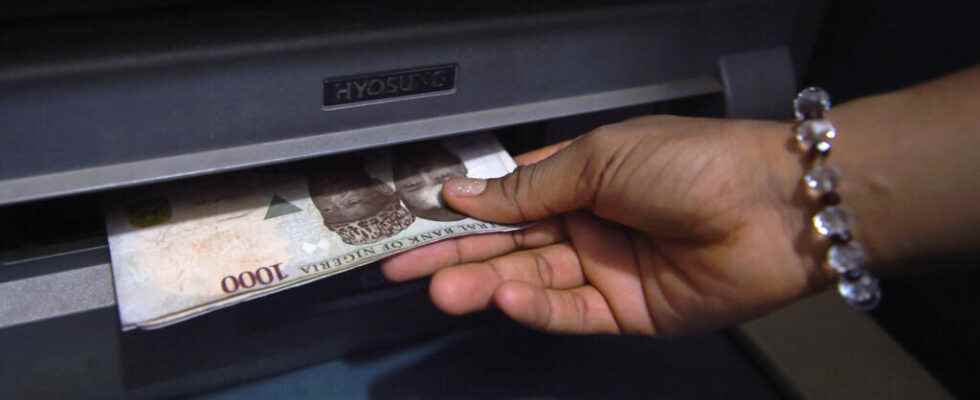From this Monday, January 9, Nigerians will only be able to withdraw 20,000 naira per day (42 euros), up to a limit of 500,000 naira per week (around 1,050 euros). A measure intended according to the authorities to control the mass of banknotes in circulation and therefore inflation.
It is a treasure hunt on the scale of the most populous country in Africa which is likely to begin this Monday. Cash-intensive Nigerians, namely shopkeepers and rural dwellers, now have very little leeway. They can withdraw a maximum of 20,000 naira per day for individuals, but 5 million per week for businesses.
The stated goal of the authorities is to succeed in limiting the mass of banknotes in circulation, both to control illicit financial flows and corruption, and to modernize the payment system such as digital money transfers, mobile money or again the e-naira, the digital naira intended for businesses and businesses.
Finally, the objective is to better control inflation. However, as economists point out, the mass of banknotes in circulation represents only 6% of the total money supply. Inflation would be better, they point out, if the state repaid the Central Bank its staggering debt which, according to the Nigerian press, would amount to 22,000 billion naira.
► To read also: Nigeria: inflation soars to reach its highest rate in 17 years
